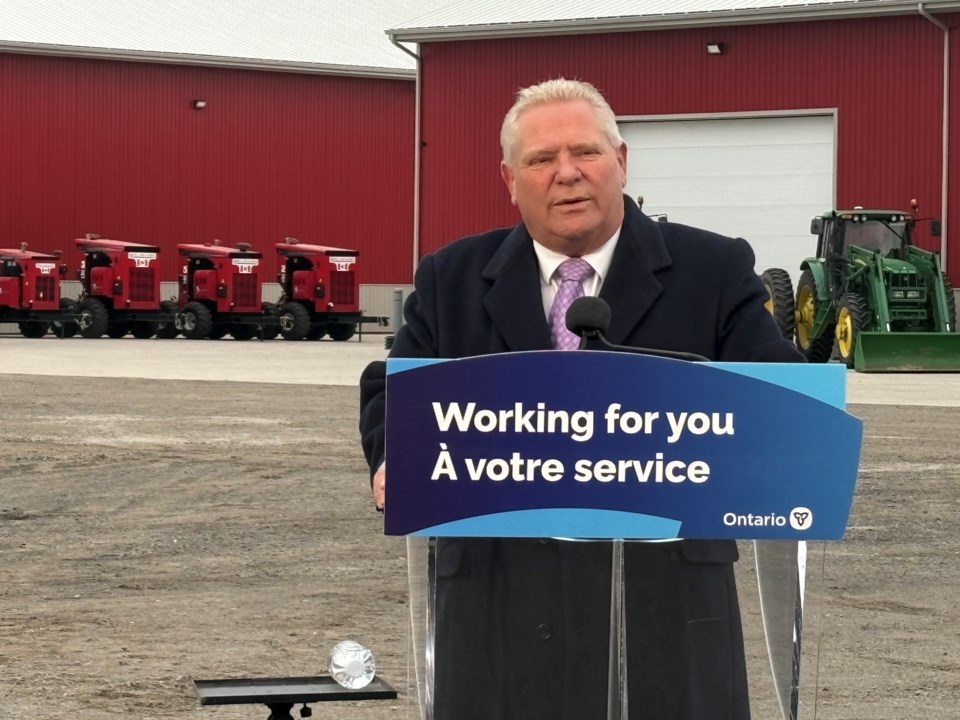NewmarketToday welcomes your letters to the editor at [email protected]. Please include your daytime phone number and address (for verification of authorship, not publication).
Re: Farmers join Ford at York farm to call for end to 'awful carbon tax,' April 2, 2024.
It’s maple syrup season and it is soon followed by the sights, sounds and smells of the farm fields being readied for another season. I also love looking across fields of corn and flax, rows of berries and orchards of fruit trees so it bothers me when farmers are hit hard economically when they are producing the things we love and count on.
Recently Premier Doug Ford stood up with some frustrated farmers and complained about carbon pricing. It’s too bad that instead of playing on those worries and frustrations for political gain, that the premier didn’t speak of opportunities for resilience; the grants and incentives that are available to farmers across Ontario and the country.
Granted, most have been initiated by Ottawa but some include funding from the province. It’s good to know that farmers can get $100,000 to $150,000 to keep one or two selected fields untilled to improve the quality of the soil, that beekeepers are being rewarded in their efforts to protect and enhance our bee colonies, and that there are millions being put into incentives for farmers to be able to transition to more energy efficient machinery.
At a quick glance, there are at least 15 for various agricultural sectors and additional federally only funded programs for agricultural expansion. They deserve fair compensation for protecting our children against future food insecurity and climate-related issues.
For now, too, until viable alternatives are available, farmers are exempt from carbon pricing for their business. Once again, one has to question Premier Ford’s real agenda. Was it really out of concern for the farmers or was it a typical political ploy to heighten frustrations and direct them at the wrong target? His federal counterpart is no better.
Conservative Leader Pierre Poilievre is quick to complain and sabotage efforts like preventing a 20 per cent increase in carbon rebates to rural families, but seems to have nothing of substance to offer to replace such programs that are making a real difference to change habits while helping 80 per cent of families, low to middle income, and reducing greenhouse emissions.
Without carbon pricing efforts, it is forecasted that we will miss are emissions targets. Grandstanding doesn’t get the real job done: it’s just more hot air.
Fighting the climate emergency should be nonpartisan. Protecting our farmers should be nonpartisan, too. We count on farmers for our food security, agricultural biodiversity and the healthy future of generations to come. We want our great grandchildren to taste real honey, real syrup, and healthy fruits and vegetables.
We count on all levels of government to understand the urgency and to lead the way in reducing emissions. We hope for, and should vote for, political leaders who are making educated decisions and comments that build resilience not frustration. Will Premier Ford pivot and become a more positive part of the climate solution and therefore, protect our farmers and our children?
Melanie Duckett-Wilson
Newmarket



